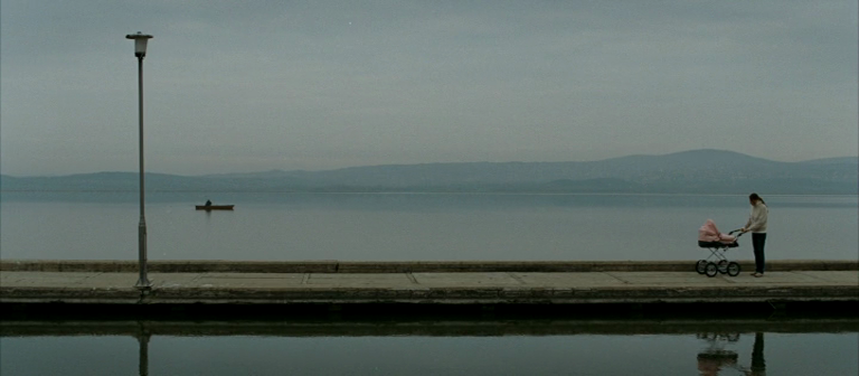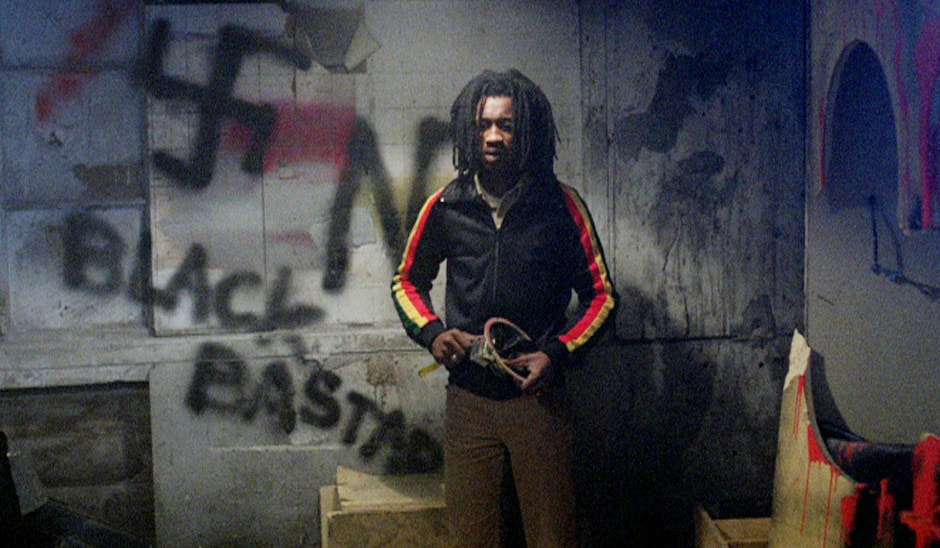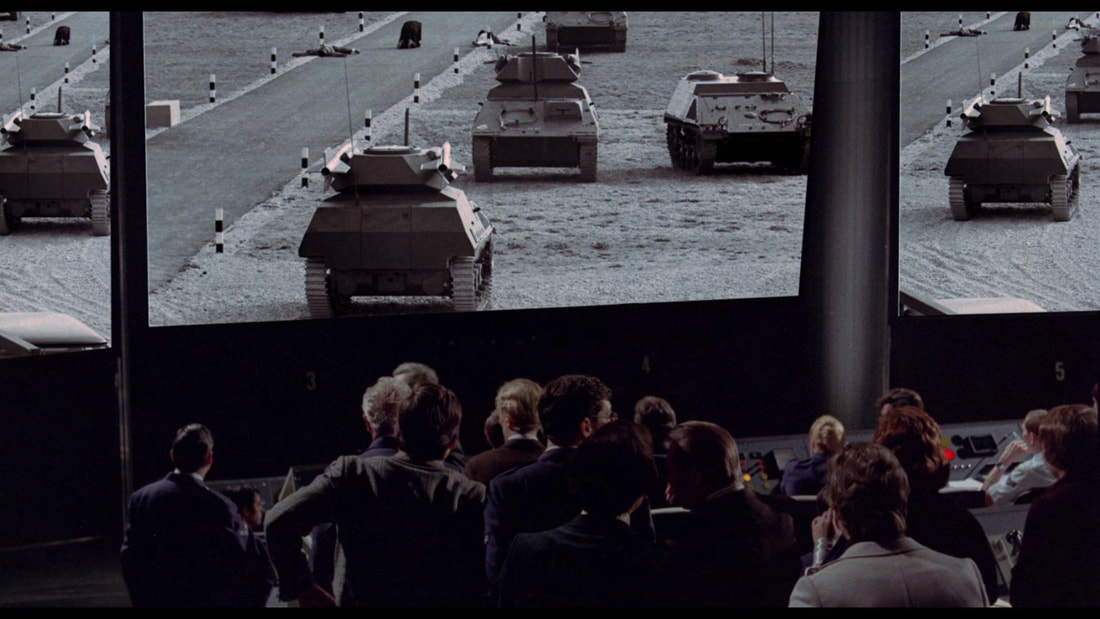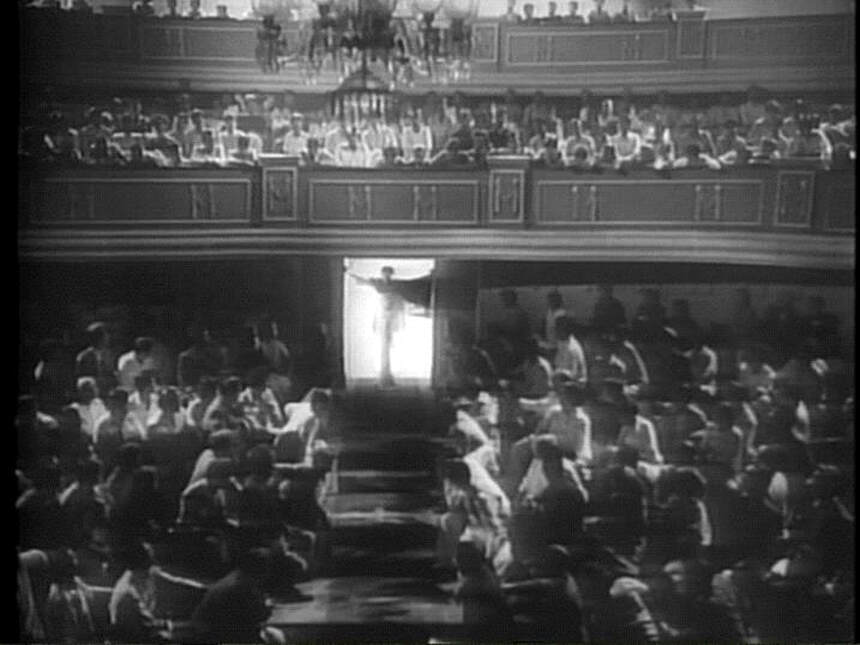|
A sensoral experience in which the natural world is used as a tool for reflection on the state of humanity through the prism of the migrant crisis, Island of The Hungry Ghosts is revelatory documentary filmmaking in which the vary foundations of philosophical readings into humankind's place in the natural world are manifested through the analogous nature of the film's form and function. Brooding with atmosphere, Island of the Hungry Ghost's employs an impressionistic lens, presenting the natural world as ominous, stoic, yet spiritual, with the island being a place of long history, one which is home to continually one of the largest migrations in the entire world which occur in the form of red crabs. Juxtaposing the humanitarian crisis of migration restrictions for asylum seekers with this phenomenon of the mass-migration and freedom of movement in the natural world of these crabs, Island of the Hungry Ghosts reveals the manufactured, unnatural ideal of the nation state itself, one thats restrictions on freedom of movement are arbitrary and intrinsically at odds with the natural state of things, one which humanity itself isn't above but a part of. The primary subject of this film is a trauma therapist whose altruistic intentions are slowly confronted by the cold mechanisms at play in the migrant detention center and system at large. Reaching a point in which being complicit by mere participation in a system in which the perpetual state of repression is intrinsic to its formation entirely, she is implored to leave this island behind, living what Aristotle himself may have viewed as 'the examined life', intent in her unwillingness ethically to participate in this unjust, perpetual, and unnatural system of repression. A powerful study of barbarism in the modern world, Island of the Hungry Ghosts reflects on the inconsistencies of aid in modern society, exhibiting in this case how the difference between migrants and natives is merely predicated on natural selection and spatial good-fortune, thus it becomes not only unnatural but nonsensical to deny others when a significant faction of the natural state itself has no relationship with meritocracy, virtue, or determinism.
0 Comments
Well-intentioned, infuriating in all the right ways, yet it lacks the philosophical, political, and intellectual acumen and/or focus of vision necessary to be revelatory. The film's core flaw is perhaps not ideological but commercially-driven, with the film focusing almost solely on the plight of its subjects and their struggle for equality as women, a worthy intent without question, but one that neglects the larger fundamental issues at play here related to freedom and equality, regardless of the various strata of human social formations. Running at only 90 minutes the filmmakers probably chose to lay their focus on the individual portraits for the sake of vision and commercial viability, yet the story of the Nicaragua revolution being so complex, one can't help but feel cheated, as if the film missed a massive opportunity in revelatory documentary filmmaking- to be more than a simple conveyor of its subject's truth. Las Sandinistas shows an inability - perhaps intentionally - to recognize the fundamental flaw of much of this crisis lies in the authoritarianism, centralization and monopoly power, concepts in which their fundamental nature is rooted in opposition to liberty, equality, and mutual aid. The craft and style of Las Sandinistas is rooted in typical documentary filmmaking tropes, relying solely on informative profiles, ones that are unquestionably empowering and informative, yet given the complexity of this story from both a temporal past and present state of human history, I can't help but feel like this film was capable to be so much more.
Man-meat the movie is apt in providing exactly that but unfortunately not much else, avoiding any nuance or unwillingness to provide any regarding the drug war, the film's perspective comes off quite draconian but hey, it avoids being explicitly nationalist, so that's a plus! The attempted morality play at the center of Triple Frontier is laborious and unimaginative with its the generic soldiers of fortune archetype places a lot of pressure on its strong cast who aren't fortunately given much to work with. So essentially, hot dudes shooting guns amounts to nothing more than Eric getting sleeping, which isn't ideal given both the um, natural, talents of the cast and their considerable craft as performers.
In the art of motion pictures, the storytelling presented in Benedek Fliegauf's Milky Way is exhibited in its purest, ideological form, one where there is nothing but sound and image, a visual profile of human action which in its seemingly insignificant fragments encapsulates the scope of existence in the modern world through the lens of the human experience. There is a notion that static photography can't be visceral or dynamic, well Milky Way stands as an explicit encapsulation of how this simply isn't true, illustrating how composition itself is just as robust in its ability to evoke a response, whether that be emotional or intellectually driven. Through Milky Way's surgical, static photography, the film's scope borders on transcendent, as it examines a wide-swath of human emotion - melancholy, triumph, despair - through its detached, voyeuristic reference point, one which entrances and intoxicates, providing a sense of tranquil euphoria to the viewer as they observe its minimalist brilliance. Simple yet universal, Milky Way is a film brooding in ambiguity about its thematic intent, offering a transfixing observational study of humans-in-motion in the present epoch of "the modern world".
Not revelatory but emotional poignant, offering a distinct window into a particularly culture and epoch, Babylon examines the racial tensions in the UK which manifest themselves due to both explicit and implicit forms of racism and suppression, wielded by both the state and private citizens themselves. A film which broods authenticity through its gritty aesthetic, Babylon examines how implicit forms of oppression are often hidden under the veil of nationalist-fueled conformity, detailing how a group of young men find themselves pushed to the brink by a society which preaches assimilation but refuses to view them as anything but second-class citizens, at best. Perhaps what is the most telling aspect of Babylon is the fact that it was banned from US audiences, which in itself says more about the film's raw depiction of race relations than anything I could rightfully muster.
A fierce political thriller by Robert Aldrich which begins idealistic about the nature of representational government, authority, liberal democracy and statism but it sours quickly, divulging into a biting critique of how power and authority intrinsically breeds oligarchy and/or plutocracy. A dialogue heavy film, Twilight's Last Gleaming remains heavily engaging due to Aldrich's deployment of split-screen photography, using it in ingenius ways to evoke tension throughout its dialogue-driven formalism which accelerates towards chaos in its depiction as the film heads towards its finale. Despite the film's biting critique of the United States government, the film remains optimistic in its finale denoucement, unwilling to completely succumb to cynicism as it relates representational government, and the intrinsic relationship between power and autocracy. This film would be a wild double-feature with Michael Bay's The Rock tbh.
A deeply humanistic work which is expertly crafted, emotionally poignant, and thematically transcendent, Pyaasa is unquestionably one of the greatest works of Indian cinema and one of the best films ever made. As rich narratvely as it is thematically, Pyaasa is a sprawling portrait of a poet whose exploited and subjugated by an unjust world where wealth and power are virtuous and selflessness, love, and humility are perceived as weakness. Brilliantly recognizes the coercive nature of not only financial but social capital, with power and authority itself being an oppressive force. Just a stunning reflection on humanity and a plea for more so-called humanism.
|
AuthorLove of all things cinema brought me here. Archives
June 2023
|







 RSS Feed
RSS Feed
